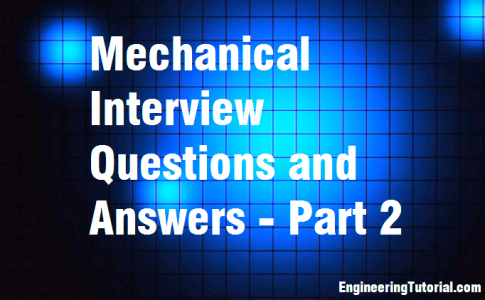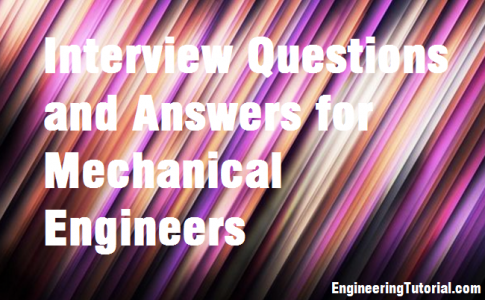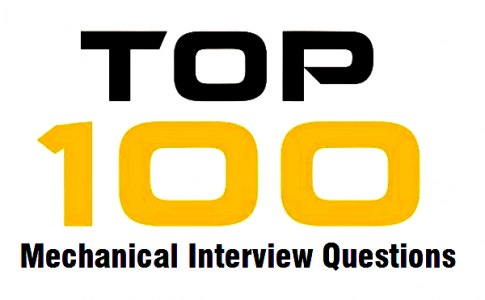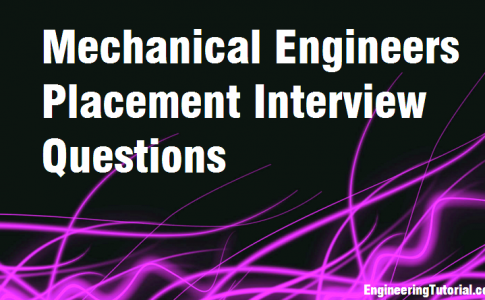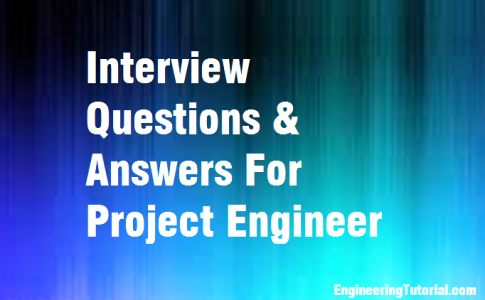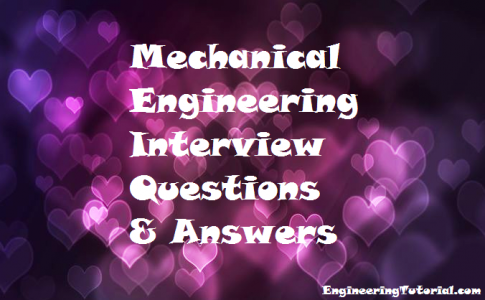-
Mechanical Interview Questions and Answers – Part 1
1. Why excess air is required to burn a fuel completely ? Excess air is required to ensure adequate mixing ... -
Mechanical Interview Questions and Answers – Part 2
1. What is the difference between scavenging and supercharging ? Scavenging is process of flushing out burnt gases from engine ... -
Mechanical Interview Questions and Answers – Part 3
1. What is the difference between isotropic and anisotropic materials ? If a material exhibits same mechanical properties regardless of ... -
Technical Interview Questions for Mechanical Engineers
1. What is anisotropy ? The phenomenon of different properties in different directions is called anisotropy. 2. What is vapour ... -
Interview Questions and Answers for Mechanical Engineers Freshers
1. How shear forces are incurred in fluid flow ? Ans: Shear forces between fluid particles and boundary walls and ... -
Top 100 Mechanical Engineering Interview Questions
1. What parameters influence the tool life ? 1. Tool material 2. Work material 3. Speed, feed and depth of ... -
Thermodynamics & Fluid Mechanics Interview Questions
Latest Thermal Interview Questions and Answers Why Entropy decreases with increase in temperature? ds=dQ/T Entropy is inversely proportional to the ... -
Mechanical Engineers Placement Interview Questions
What is the difference between Fan and Blower? Fan is an air pushing device. Either Axial or Centrifugal type systems ... -
Interview Questions & Answers For Project Engineer
What is project engineering ? Project Engineering bridges the boundaries between engineering and project management, leading the technical workers who ... -
Mechanical Engineering Interview Questions & Answers
1. Explain the second law of thermodynamics. The entropy of the universe increases over time and moves towards a maximum ...

